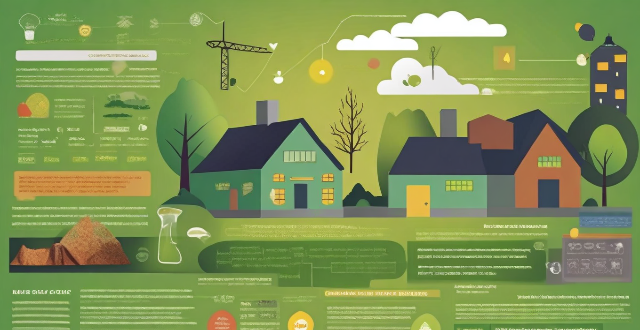Recycling offers numerous benefits including conservation of natural resources, energy efficiency, reduction in greenhouse gases, saving landfill space, economic benefits, and promoting sustainability. To promote recycling more effectively, strategies such as education and awareness campaigns, improving collection systems, implementing economic incentives, passing legislation, investing in innovation, involving communities, and changing behavior can be employed.

Benefits of Recycling
Recycling is the process of converting waste materials into new products, preventing the waste of potentially useful materials, reducing the consumption of fresh raw materials, and minimizing energy usage. The benefits of recycling are numerous and significant:
- Conservation of Natural Resources: By recycling, we reduce the need to extract, refine, and process raw materials like wood, metal, and petroleum. This conservation helps preserve natural habitats and biodiversity.
- Energy Efficiency: Making products from recycled materials often requires less energy than producing them from virgin materials. For instance, producing aluminum from recycled cans takes only 5% of the energy needed to make it from bauxite ore.
- Reduction in Greenhouse Gases: Less energy use also means fewer greenhouse gas emissions. Recycling one ton of paper saves approximately 17 trees and reduces air pollution by 60 pounds of particulates and methane.
- Saves Landfill Space: Recycling reduces the amount of waste that ends up in landfills, which in turn saves space and slows landfill growth.
- Economic Benefits: Recycling creates jobs and stimulates local economies. It also reduces disposal costs for communities and businesses.
- Promotes Sustainability: Recycling supports a circular economy where materials are reused, reducing the dependence on single-use items and promoting sustainability.
Promoting Recycling More Effectively
To promote recycling more effectively, various strategies can be implemented at individual, community, and governmental levels:
Education and Awareness
- Public Campaigns: Run public awareness campaigns highlighting the benefits of recycling and the impact of non-recycled waste on the environment.
- School Programs: Integrate recycling education into school curriculums to teach children about the importance of recycling from an early age.
Infrastructure and Accessibility
- Improve Collection Systems: Make recycling bins readily available in public spaces, residential areas, and offices to encourage participation.
- Curbside Pickup: Implement or improve curbside recycling programs to make it convenient for households to recycle.
Economic Incentives
- Deposit-Refund Systems: Implement bottle bills or similar systems where consumers receive a deposit refund when they return recyclable containers.
- Tax Breaks for Businesses: Offer tax incentives for companies that use recycled materials or that have robust recycling programs.
Legislation and Policies
- Mandate Recycling: Pass laws requiring businesses and municipalities to recycle a certain percentage of their waste.
- Extended Producer Responsibility (EPR): Hold manufacturers responsible for the end-of-life recycling or disposal of their products.
Innovation and Technology
- Research and Development: Invest in research to develop better recycling technologies and processes that can handle a wider variety of materials.
- Smart Bins: Use technology like sensors in recycling bins to monitor fill levels and optimize collection routes.
Community Involvement
- Community Clean-Up Days: Organize events where community members come together to clean up and recycle waste.
- Partnerships with Local Businesses: Collaborate with local businesses to sponsor recycling initiatives or provide recycling services.
Behavior Change Strategies
- Feedback Mechanisms: Provide feedback to individuals and businesses on their recycling efforts, such as through dashboards showing their contribution.
- Recycling Challenges: Create friendly competitions among neighborhoods or workplaces to see who can recycle the most.
By combining these strategies, recycling can be promoted more effectively, leading to a cleaner environment and a more sustainable future.